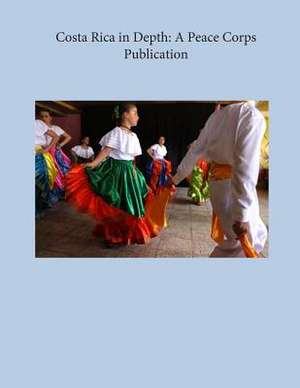Costa Rica in Depth
Autor Peace Corpsen Limba Engleză Paperback
Preț: 82.97 lei
Nou
Puncte Express: 124
Preț estimativ în valută:
15.88€ • 16.44$ • 13.42£
15.88€ • 16.44$ • 13.42£
Carte disponibilă
Livrare economică 12-26 februarie
Preluare comenzi: 021 569.72.76
Specificații
ISBN-13: 9781502348098
ISBN-10: 1502348098
Pagini: 48
Dimensiuni: 216 x 279 x 3 mm
Greutate: 0.14 kg
Editura: CREATESPACE
ISBN-10: 1502348098
Pagini: 48
Dimensiuni: 216 x 279 x 3 mm
Greutate: 0.14 kg
Editura: CREATESPACE
